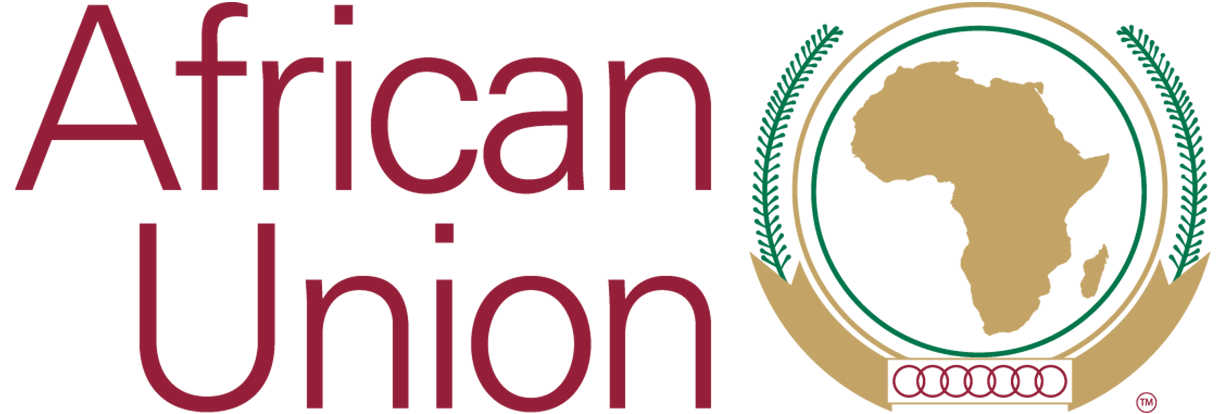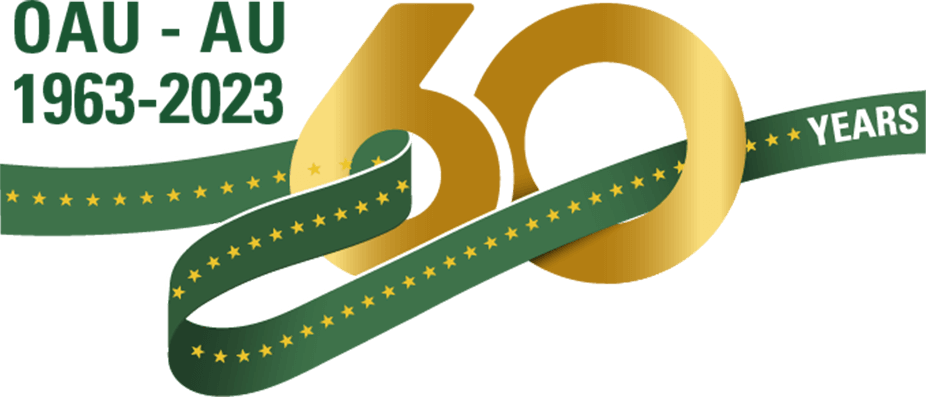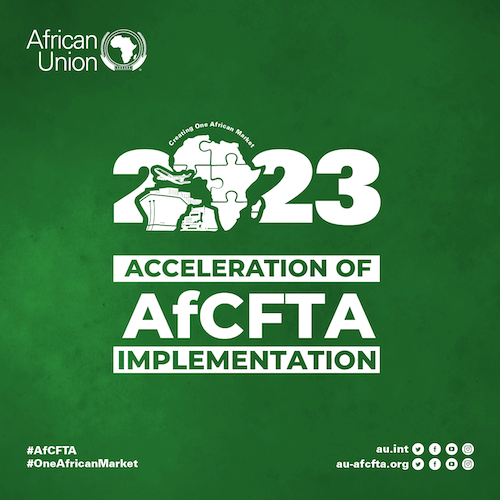Founding Mothers
In July 1962 in Dar es Salaam Tanganyika (now known as Tanzania), African women from across the continent gathered in the Conference of African Women, a monumental meeting and the first of its kind; and decided to unite and create a common platform for solidarity and mobilisation of their efforts for the rights and freedoms of Africans in their fight for independence and liberation from the yokes of colonialism, elimination of apartheid and segregation in all its forms as well as advocating for the participation of African women in political decision making structures.
Fourteen countries and a dozen of the resistance organizations participated in the July 1962 meeting and a new organization known as “the Union of African Women” was created; a year before the founding of the Organization of African Unity (OAU). The same meeting proclaimed an African Women’s Day to be celebrated on 31st July of each year. In 1974, “the Union of African Women” was renamed as “the Pan-African Women’s Organization” (PAWO).
PAWO is a representative organisation of women on the African continent having presence in all 55 Member States of the African Union, with five regional representations. Its objectives are, amongst others, to strive to achieve effective and responsible participation of African women in the socio-economic and cultural development of Africa; to pursue the struggle for the representation of women at decision-making levels; and to fight for women’s empowerment and for the elimination of all forms of discrimination against women.
Learn more about PAWO on https://pawowomen.com
Jeanne Martin Cissé was a Guinean teacher who was an activist and pan-Africanist who championed the rights of Africans during the fight to end colonialism and ensure Africa’s liberation struggle was successful. She was one of the pioneer Africans who recognised the need to collaborate and promote unity if Africa was to achieve its destiny. She was the 1st Secretary General of the Pan African Women’s Organisation (PAWO) which was actually formed in July 1962, one year before the formation of the Organisation of African Unity. Women were at the forefront of the liberation and must be celebrated as part of Africa’s liberation heroes. She also served as Ambassador to the United Nations Jean Martin Cissé is also recognised for being 1st Female to serve as President in the United Nations Security Council a position she held in 1972 where she advocated for a stronger and firmer approach against the apartheid regime in South Africa including the adoption of sanctions against South Africa |
Huda Shaarawi was a feminist and national leader and founding president of the Arab Feminist Union. Huda was amongst the leaders of the women-led Egyptian Revolution of 1919 advocating for Egyptian independence from Britain and the release of male nationalist leaders. |
Funmilayo Ransome Kuti was a key and prominent in the fight for freedom from British colonial rule in Nigeria. She founded the Abeokuta Women's Union whose membership was made up of over 20,000 women who used their movement to protest the taxes inflicted by the colonial regime. Funmilayo was an ardent advocate for the right of women right to participate fully in politics and to be represented in a political and economic spheres of governance Funmilayo Ransome Kuti is the mother of the legendary African music legend Fela Kuti and aunt to the legendary Author Wole Soyinka |
Gisèle Rabesahala from Madagascar joined politics at the age of 17 and became the secretary of the Democratic Movement for Malagasy Renewal which campaigned for the independence of Madagascar from colonial rule. She rose through political ranks to become the first woman to be elected as a leader of a political party in 1958 and later became the first woman to be appointed as a Minister in the independent Malagasy government in 1977. She was a renowned human rights activist, a true pioneer and a major political force in Madagascar’s history. |
In 1949, over 2000 women in Cote d’Ivoire (Ivory Coast) marched against colonial rule to protest the unjust imprisonment of their male family members. The march which is commemorated as the Women’s March on Grand Bassam witnessed an estimated 2000 women take part. They were beaten, injured & prosecuted, without any of their loved ones being released. |
Zogbo Céza Galo Marie #MarieKoré was a freedom fighter from #CoteDIvoire & active in the independence movement against colonial rule who led the Women's march on Grand-Bassam in 1949 where she was beaten and arrested. |
Empress Taytu Betul of Ethiopia was a true warrior who resisted attempts to turn Ethiopia into a protectorate of the then Italian powers. Notably she tore up The Treaty of Wuchale and inspired her male counterparts to resist and stand up against the Italians. Together with her husband Emperor Menelik II they led the army in the Battle of Adwa where they won one of the most important victories of any African army against European colonialist aggression. Share with us female heroes from Africa’s liberation movements. |
Winnie Madikizela Mandela of South Africa was an #antiApartheid activist who was often surveilled, beaten, tortured, jailed and even banished to remote towns in South Africa for her political activism. She fought tireless and continuously against the racism and the brutalities the apartheid South African regime. |
Muthoni Gachanga Likimani of Kenya is one of the founding members of the Pan African Womens Organisation. She was active in the anti colonial & independence movement and Throughout her life a Women’s Rights Activist She was the #1stAfrican to establish a Public Relations firm. One of Kenya’s earliest authors who has published works of both fiction and non-fiction, as well as children’s books. During her career she has also been a teacher broadcaster, and actress. She was the first Kenyan beauty queen Watch this interview of Likimani Muthoni on https://www.youtube.com/watch?v=n-unPaJXzbo |
Aoua Kéita from Mali was one of the founders of the Pan African Women’s Organisation in 1962. She was the #1stWoman from Francophone West Africa to be elected to a national assembly and she established a women’s wing in her political party & also set up a women’s trade union. Share with us female heroes from Africa’s liberation movement. |
Putuse Apollos of Namibia was one of the founders of the Pan African Women’s Organisation in 1962 and an organiser of the Women's League of the South West Africa People's Organisation (SWAPO) which was the movement leading the independence fight of Namibia from colonial rule. She was one of the first women to go into exile during the Namibian fight for independence. Watch the profile film by @PAWOWomen about Putuse Apollos on https://youtu.be/_Kf5gItJ-mg |
Bibi Titi Mohamed was one of the founders of the Pan African Women’s Organisation in 1962 a Tanzanian pioneer and champion of women’s participation in the liberation movement and struggle for Tanganyika’s independence from colonial rule and the subsequent unification of Tanganyika & Zanzibar to become Tanzania. She entered politics in 1955 and became the first female member of the Tanganyika African National Union (TANU), an independent party led by Julius Nyerere where she helped to recruit more than six thousand women for the party. She is referred to as the ‘Mother of the Nation’ for her role in Tanzania’s freedom struggle. She was the president of the national organisation of women’s groups, Umoja wa Wananawake wa Tanzania from 1962-1967. |
Alda do Espirito Santo from São Tomé and Príncipe was a teacher & independence activist who was imprisoned by colonial authorities for her nationalist activities and participating in African Liberation Movements. She was the author of the lyrics of the national anthem “Independência Total”. She held several government roles after independence including Minister of Education and Culture and Minister of Information and Culture as well as President of the National Assembly. She also held the position of and General Secretary of the National Union of Writers and Artists of São Tomé and Príncipe |
Ida Fiyo Mntwana of South Africa was president of the African National Congress (ANC) Women’s League a role she took up in in 1949. An ardent anti-apartheid activist she led women’s demonstrations in her township. In 1954 she was elected the national president of the Federation of South African Women (FEDSAW). She was instrumental in the Congress of the People, which drew up and adopted the Freedom Charter for the people of South Africa and was tried for treason in 1956 by the apartheid government for her role in drawing up the Charter. Ida became well known for her leadership of the anti-pass demonstrations by women. |
Annie Silinga was an activist who campaigned against the apartheid regime of South Africa she joined the Langa Vigilance Association In 1948 to join the fight to advocate for the rights of, and improve the living conditions of the townships’ resident. In 1952 she joined the African National Congress (ANC) during the Defiance Campaign. She was a prolific campaigner against the carrying of passes and was arrested severally for refusing to obey the pass regulations. She was arrested in December 1956 and charged with treason. In 1956 She was one of the organisers of the historic march of women to Pretoria by the Federation of South African Women FEDSAW where 20,000 women marched to the Union Buildings to petition against the apartheid regime’s pass laws. Annie Silinga died in 1984 having never caried a pass |
Rahima Moosa was a member of African National Congress (ANC) was one of the organisers of the 1955 Congress of the People in which the Freedom Charter for the people of South Africa was drawn and adopted. In 1956 Rahima Moosa helped organise the historic Women’s March under the Federation of South African Women FEDSAW where 20,000 women marched to the Union Buildings in Pretoria to petition against the apartheid regime’s pass laws. She was awarded the Order of Luthuli in Silver in 2018 for “Her selfless contribution to the fight for freedom and gender equality”. |
Josina Muthemba Machel from Mozambique was a prolific figure in the struggle for freedom from colonial rule and independence of the country. At the age of 15 she became politically actively joining clandestine groups that opposed colonial rule. At the age of 18 she and others attempted to flee to join the Impendence Movement of Mozambique known as FRELIMO which was then operating out of Tanzania who as an OAU Member offered support to liberation movements from neighbouring countries still fighting colonial rule and apartheid and seeking independence Josina was arrested several times by colonial authorities but never ceased her fight along fellow freedom fighters. By the age of 20 she was holding significant responsibility within FRELIMO in their fight for independence and even underwent military training. She was married to the first president of Mozambique Samora Machel. She died at the age of 25 and in her honour Mozambique declared the date of her death April 7 as National Women’s Day. |
Adelaide Tambo of #South Africa one of the founders of the #PanAfricanWomensOrganisation in 1962 an #AntiApartheid activist who joined the #ANCYouthLeague at 18 to fight the #apartheid government Share with us female heroes from Africa’s liberation movement. |
Rose Ziba Chibambo was an anticolonial activist who together with Vera Chirwa created the Nyasaland African Women’s League with the aim of supporting women’s issues and raising their awareness of political issues. She was active in organising women to fight against the intention of the colonialists to make Nyasaland (present day Malawi) part of the Federation of Rhodesia and Nyasaland and was arrested and imprisoned for her activities in 1959. After independence she was elected Member of Parliament and appointed junior minister |
Betty Kaunda of Zambia was an independence activist who as a member of the United National Independence Party (UNIP) fought for Zambia’s freedom from colonial rule. She was one of the founders of the Pan African Women’s Organisation in 1962 & UNIP women’ league & chaired the 1962 @PAWOWomen Conference. She was later the First Lady of Zambia as the wife of its first President Kenneth Kaunda. |
Angie Brooks of Liberia was one of the founders of the Pan African Women’s Organisation. In 1969 she became the 2nd woman to hold the position of President of the United Nations General Assembly @UNGeneralAssembly and the only African female President since its founding to date. |
Margaret Wambui Kenyatta of Kenya was an anti-colonial activist and one of the founders of the Pan African Women’s Organisation. She was the daughter of Kenya’s first president and Jomo Kenyatta and joined the Peoples Convention Party which was formed in 1956 during the period of the State of Emergency in Kenya. The Party fought for the rights of African and the release of political detainees. Margaret Kenyatta became the #1stAfricanWoman Mayor of Nairobi, the capital city of Kenya in 1970. |
Radhia Haddad of #Tunisia anticolonial activist & one of the founders of #PanAfricanWomensOrganisation & former Chairperson of the National Union of Tunisian Women. Share with us female heroes from Africa’s liberation movements |
Judith Yodit Imru from Ethiopia was one of the founders of the Pan African Womens Organisation and an experienced diplomat who was the first female Ethiopian Ambassador and active in the establishment of the Organisation of African Unity (OAU) and the UN Economic Commission for Africa. |
Jeanne Gervais of #CoteDivoire Côte d’Ivoire one of the founders of #PanAfricanWomensOrganisation & participated in the Women's March on Grand-Bassam in 1949. She was the 1st woman Cabinet Minister. |
Bembelo Fatoumata A. Diaroumeye of Niger was an independence movement and political activist and one of the founding members of the Pan African Womens Organisation. She served as the President of the Network of women for Peace (REFEPA) in Niger and was a former advisor to the UN Economic Commission for Africa. |
Marguerite Adjoavi Trénou née Thompson of Togo was a political activist and one of the founding members of the Pan African Women’s Organisation . She started her career as a teacher and Principal of the Rufisque School for girls and later went on to train as a lawyer earning the distinction of being Togo’s 1st Woman advocate. She also served as the Secretary General of National Union of Women of Togo, Secretary General of the Chamber of Commerce, Director of the National Social Security Fund and was one of 6 women elected to Parliament in 1979. |
Rebecca Mulira of Uganda was one of the founding members of the Pan African Women’s Organisation. An ardent anti colonial and independence movement activist she also held leadership positions organisation that advocated for Women’s Rights including the multicultural Uganda Council of Women (UCW) where she was elected as Vice-president in 1961 |
Pumla Ellen Ngozwana Kisosonkole was born in South Africa and moved lived to Uganda after marriage to Ugandan Christopher Kisosonkole in 1939. She was a founding member of the Pan African Women’s Organisation which was created in 1962 In 1956 she was nominated to the Uganda Legislative Council (LEGCO) of the Protectorate Government and was the first African woman to enter the Legislative Council. She served as a representative in the legislature during Uganda’s transition from a British colony to independence. In 1957 she was elected as president of the Uganda Council of Women where she served for 4 years and was the first African to serve in that role. She was president of the International Council of Women from 1959 to 1962 |
Maria Waningu Nyerere of Tanzania was one of the founding members of the Pan African Women’s Organisation which was created in 1962. She is an icon in Africa’s liberation struggle who advocated for the respect of the human rights and dignity of Africa’s peoples. She was married to the 1st President of Tanzania Julius Nyerere and was First Lady of Tanzania from 1964 to 1985 She serves as one of the council of elders of the Alliance for Tanzania Youth Economic Empowerment (ATYEE) |
Joyce Mpanga of Uganda is a pan Africanist an one of the founding members of the Pan African Womens Organisation. She was active in the anti-colonial & independence movement of her country. She was a teacher at Makerere College where she started her career in 1958 and was later headmistress of Gayaza High School in 1962. She was elected into the Uganda Legislative Council in 1960 and went into exile in 1966 and returned to Uganda in 1972. In 1988 she became Uganda’s first Minister of Women in Development. She is the Author of the book “It’s a pity she is not a boy’. |
Phoebe Asiyo from Kenya is one of the founding members of the Pan African Women’s Organisation which was created in 1962. In December 1958, she was elected as the first black president of the giant women’s movement in Kenya, Maendeleo Ya Wanawake Organisation (MYWO) and became the first fblack woman to become a senior superintendent of Kenya Women's Prisons in 1963 Throughout her life she has been an activist for #WomensRights. In 1960 she led a contingent of Kenyan women to meet Jomo Kenyatta in Lodwar, Kenya where he had been exiled by the colonial government and request him to constitutionally allocate 50 per cent of positions in Parliament to women once he became president. Phoebe Asiyo was bestowed the Order of the Grand Warrior of Kenya and became the #1stWoman elder of Kenya’s 42 communities. She was a legislature in Kenya’s parliament for almost 2 decades and also served as a good will ambassador for the United Nations Development Fund for Women UNIFEM now UN Women. |
Fatia Bettahar of Algeria was one of the founding members of the Pan African Women’s Organisation who was active in the anti-colonial movement in her country As a Women’s Rights activist she advocated for equal education opportunities and devoted herself to the education and vocational training of Algerian women and once held the position of Secretary General of National Union of Algerian Women (UNFA) |
Fathia Nkrumah of Ghana nee Fathia Halim Rizk was a founding member of the Pan African Women’s Organisation which was created in 1962. She was born in Egypt and moved to Ghana where she married Ghana’s first president Kwame Nkrumah in 1957 and was the first #1stLady of independent Ghana She was a supporter of the anti-colonial movement who believed in the ideals of Pan Africanism and African Unity and a strong advocate for the complete independence of all African states from colonial rule. |
Maria Ruth Neto from Angola was a founding member of the Pan African Women’s Organisation and once held the position of Secretary General. An active supporter of the Anti colonial Ani- Apartheid movements her youth was characterised by acts of leadership and defiance against injustices in her own country of Angola or in countries with a history of injustices. She served in the Movimento Popular de Libertação de Angola #MPLA. |
Attaher Jeannette Haïdara of Mali was a founding member of the Pan African Women’s Organisation She graduated as a teacher in 1943 from the Ecole Normale de Jeunes filles de Rufisque and was a member of the 1st Promotion of Women Teachers, Promotion Ecureuil. She served as the Director of l’Ecole des Filles (Girls school). from 1959 to 1968. The training institution for girls “Centre informatique Mme Attaher Jeannette Haïdara” is named in her honour She was active in politics and led many women’s movements such as the Djémanguélé Ségou from 1951 to 1959. |
Madam Sow Aissata Coulibaly of Mali was a founding member of the Pan African Women’s Organisation created in 1962. An ardent supporter of the anti-colonial movement and a pan Africanist who started her career as a techer having graduated in 1944 from the « Ecole Normale de Rufisque She was active in the trade union movement and in 1956 became the Secretary General of Women Workers within « Union Territoriale des Travailleurs du Soudan » and was a co-founder of the West African Women’s Union (Union des Femmes de l’Afrique de l’Ouest) |
Nima BA of from Guinea was a founding member of the Pan African Women’s Organisation created in 1962. Like her peers of the period she was a teacher who took part in the anti-colonial movement to advocate for freedom from colonialism complete independence and advocated for African Unity under the ideals of pan Africanism |
Traore Aïssata Berthe a teacher from Mali was a founding member of the Pan African Women’s Organisation created in 1962. |
Fatou Toure Conde of Mali was a founding member of the Pan African Women’s Organisation created in 1962 She graduated as mid-wife and become politically active in the anti-colonial movement. In 1962 she began political activities in Conakry joining the Women’s Federal Bureau of Conakry where she was elected President. She also served in the Conakry Women’s National Bureau. She served as National Director of Womens Affairs at the Ministry of Social Affairs a position she held until her retirement |
Jacqueline Tapsoba Burkina Faso was one of the founding members of The Pan African Women’s Organisation created in 1962. She was active in the anti colonial movement and an ardent advocate for #AfricanUnity |
Albertina Sisulu from South Africa was an #antiApartheid activist ¬ably the only woman present when the ANC Youth League was created. She participated in the 1956 march of 20,000 women to Pretoria to protest the racist pass system. She was released after spent 3 weeks in jail. Her lawyer was Nelson Mandela She was the first woman to be arrested under the General Laws Amendment Act of 1963 and held in in solitary confinement for almost two months. Albertina was married to fellow anti-apartheid activist Walter Sisulu. |
Dr. Nkosazana Dlamini Zuma is an anti-apartheid activist and freedom fighter from South Africa who later rose to continental prominence by becoming the first ever woman to head the African Union Commission as its Chairperson As a University Student studying medicine in the University of Natal she became a member of the South African Students' Organisation and was elected as the deputy president of the organisation in 1976. Nkosazana was exiled for her political activities and between 1977 and 1978 she became the chairperson of the African National Congress (ANC) Youth Section between 1977 and 1978 |




